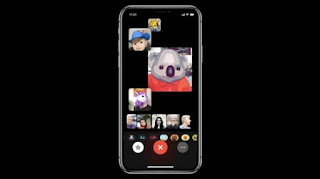![[IMG]](https://www-techinasiacom.netdna-ssl.com/wp-content/uploads/2015/04/Z-720x389.jpg)
“Are you OK?” – it’s a phrase that’s gone sarcastically viral in China after Xiaomi CEO Lei Jun gave a rather awkward English-language presentation at Xiaomi’s recent launch event in India. If you haven’t heard about this, The Wall Street Journal has a nice rundown, but the video really speaks for itself:
The video, which has been viewed nearly half a million times on Youku alone, has turned Lei Jun into a bit of a punchline on Weibo. “Are you OK?” has become a common refrain for those critical of Xiaomi’s products or of Lei Jun himself. Wang Sicong, a prominent investor and the head of Pusi Capital, even got in on the mocking. Chinese net users have also drawn unflattering comparisons between Lei Jun’s English and Facebook founder Mark Zuckerberg’s Chinese.
The irony, of course, is that Mark Zuckerberg’s Chinese came in for similar criticism (from foreign observers, not Chinese) when he first broke it out at a public forum last year. Here at Tech in Asia we defended his efforts, but others weren’t so kind. Foreign Policy editor Isaac Stone Fish, for example, called Zuckerberg’s Chinese “terrible.”
Objectively speaking, the critics are right about both Lei Jun and Mark Zuckerberg: their foreign language skills aren’t perfect. They definitely need more work. And as the representatives of two of the world’s biggest tech companies, it does look a bit odd to see either of them onstage speaking in heavily-accented, mistake-riddled sentences.
But even so, critics are missing the forest for the trees. Lei Jun deserves praise for his gutsy (if perhaps also misguided) attempt at using English during his company’s presentation. Here are three reasons why:
![[IMG]](https://www-techinasiacom.netdna-ssl.com/wp-content/uploads/2014/10/ZuckChinese-350x195.png)
Zuckerberg speaking Chinese in public.
One: it shows dedication. Lei Jun’s presentation may have caused mocking laughter in China, but his Indian audience doesn’t seem to have been bothered by it. I feel certain that a most of the Indian audience appreciated his attempt to speak in their language, and even if what he said wasn’t perfect, they knew what he meant. Moreover, they knew that he cared enough about the Indian market to show up and risk embarrassing himself just to try to communicate more directly with them. That’s a good thing.
(Incidentally, pretty much the same thing happened to Zuckerberg after his public Chinese-language forum. Foreign observers criticized him and so did some Chinese watchers, but most of the Chinese audience was grateful that he made the attempt, and felt that it showed respect.)
Two: mistakes are how you learn. If Lei Jun wants to learn English – and as the CEO of a company with global ambitions, he should – then he’s going to need to make some mistakes. You learn to speak a language by getting out there and speaking it, making a ton of mistakes along the way. There’s no way to just sequester yourself in a classroom for years and emerge speaking perfect English (or Chinese) the first time you open your mouth in public. Making mistakes in public is how you learn, and Lei Jun deserves credit for having the guts to put himself out there despite his position.
Three: his English isn’t that bad. Sure, Lei Jun clearly isn’t on the level of other Chinese tech execs like Jack Ma when it comes to speaking English. But based on my experience living in China, he’s still probably better at it than the average Joe. And I’m willing to bet that half the people criticizing and mocking him right now have never had the guts to even try speaking English with foreigners at all, let alone on a stage in front of thousands.
“Are you OK?” may be an embarrassing meme for a moment, but Lei Jun’s earnest efforts to speak English will be more than worth it in the long run. And the response to Lei Jun’s India speech shouldn’t dissuade anyone in Asia’s tech industry from trying to learn the local language of any country where their products are available. You may never get good enough to be mistaken for a native speaker, but you can make your customers feel important and respected when you show them that you care enough to communicate in their language.
In short: don’t listen to the haters. Learn to speak the language of your customers and they’ll reward you for it in the long run – even if you make a few silly mistakes along the way.
This post Lei Jun’s awkward English speech in India deserves praise, not criticism appeared first on Tech in Asia.

No comments:
Post a Comment